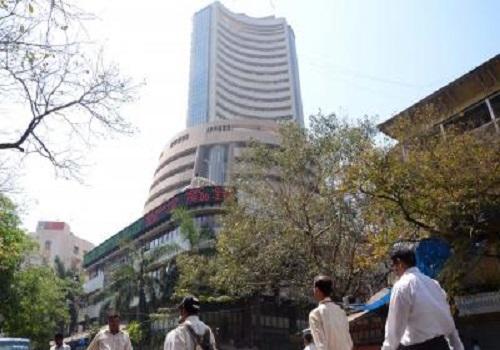
Market Recovery Driven by Positive Global & Domestic Cues: Experts
After three consecutive weeks of losses, the Indian stock market made a strong comeback, closing the week with gains of nearly 2 per cent. This sudden upswing in the market can be attributed to the positive global and domestic cues that have helped stabilize the financial markets.
According to market watchers, the global sentiment improved following reports of a delay in US tariffs and the possibility of further negotiations. This development has helped alleviate fears of an impending trade war, which had been weighing heavily on the global markets. The delay in tariffs has been seen as a sign of progress in the ongoing trade talks between the US and China, and has boosted investor confidence.
Domestically, the Indian government’s efforts to improve the business environment and stimulate economic growth have also contributed to the market’s recovery. The government’s decision to reduce corporate tax rates and increase investment in infrastructure projects has been seen as a positive step towards boosting economic growth.
In addition, the Reserve Bank of India’s (RBI) decision to cut interest rates and inject liquidity into the banking system has also helped improve market sentiment. The RBI’s move to reduce interest rates has made borrowing cheaper, which has helped stimulate economic growth and boost consumer spending.
The Indian rupee has also gained strength against the US dollar, which has helped improve market sentiment. A strong rupee can help reduce the cost of imports and improve the country’s trade balance, which can have a positive impact on the economy.
The market’s recovery has been led by the benchmark Sensex, which gained over 2 per cent last week. The Nifty 50 index also rose by over 1.5 per cent, with many stocks hitting fresh highs. The broader markets also participated in the rally, with the BSE Midcap and Smallcap indices rising by over 1 per cent and 2 per cent, respectively.
Among the key sectoral gainers, the banking and finance sector led the way, with stocks such as ICICI Bank, HDFC Bank, and Axis Bank rising by over 2-3 per cent. The technology and software sector also saw significant gains, with stocks such as TCS, Infosys, and HCL Technologies rising by over 1-2 per cent.
The market’s recovery has been driven by a combination of global and domestic factors. Globally, the improvement in the trade talks between the US and China has helped alleviate fears of an impending trade war, which had been weighing heavily on the global markets. Domestically, the government’s efforts to improve the business environment and stimulate economic growth have also contributed to the market’s recovery.
Despite the market’s recovery, experts are cautioning investors to maintain a positive approach with a long-term perspective. According to experts, the market’s recovery is not a one-time event, and it is essential for investors to be prepared for any future volatility.
“The market’s recovery is a sign of a more stable and resilient economy,” said a market expert. “However, investors should not get complacent and should maintain a positive approach with a long-term perspective.”
Another expert added, “The market’s recovery is driven by a combination of global and domestic factors, and it is essential for investors to be prepared for any future volatility. Investors should continue to diversify their portfolios and maintain a long-term perspective.”
In conclusion, the Indian stock market’s recovery is driven by positive global and domestic cues. The improvement in the trade talks between the US and China and the government’s efforts to improve the business environment and stimulate economic growth have helped stabilize the financial markets. Despite the market’s recovery, experts are cautioning investors to maintain a positive approach with a long-term perspective.






